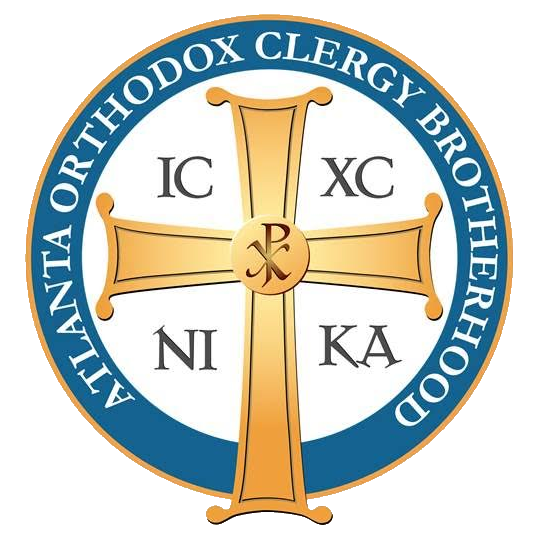Fr. Michael Tishel
Holy Transfiguration Greek Orthodox Church
Marietta, GA
Biography
Fr. Michael was born and raised in Boston, MA, where he enjoyed living in an urban setting, especially one as old (relatively-speaking) as Boston. His last name means “little table” in Yiddish. Both of his parents were raised in the Jewish tradition and embraced Orthodoxy when he was two years old. He attended his father’s Orthodox parochial school, St. Herman of Alaska Orthodox School, and eventually ended up studying English Literature in college. Fr. Michael changed majors halfway through, and pursued a degree in Comparative Historical Theology, which led him to desire to study theology with the hopes of someday following in his father’s footsteps as a priest. This took Fr. Michael on a journey to Thessaloniki, Greece, where he learned modern and ancient Greek, and completed a master’s of theology. He then returned to the States and served as the director of the CrossRoad Summer Institute for 7 years, during which time he married to his lovely wife, Pres. Catherine, had two (of their, now, four) children, was ordained to the diaconate and subsequently to the priesthood. He moved down to Marietta, GA, in order to serve as the ephimerios (assistant priest) alongside Fr. Panayiotis Papageorgiou, where he also completed his doctoral studies remotely through Aristotle University of Thessaloniki.
Fr. Michael has four beautiful children (Zoe, Isaac, Aidan, and Luke). He and Pres. Catherine enjoy the outdoors and love finding new restaurants and music venues together in and around Atlanta. Pres. Catherine is a nurse and works remotely from home for Boston Children’s Hospital in their epilepsy clinic.
Aside from the Bible, what other book has most influenced your life and why?
Dostoyevsky’s, The Idiot, provides a profoundly beautiful and complex image of what it means to be human. Dostoyevsky in general has been very influential in my life, insofar as his sense of humanity is much more complex than your everyday “good people” vs. “bad people” dichotomy. For Dostoyevsky, everyone has the potential for and seeds of the most catastrophic human actions as well as the most virtuous. The beauty and complexity of the inner world on one, single human being, is what makes this world come alive for me, and Dostoyevsky portrays this in an incredibly profound manner. In some sense, it is the essence of the Incarnation, insofar as the presence of Christ, made the present moment that much more vivid, rich, and beautiful.
In your opinion, what makes a great homily?
I personally enjoy hearing extemporaneous sermons, where the homilest has not necessarily prepared in advance, but rather makes his cross, gazes out into the faces of the people, and asks the Holy Spirit to give him a word for this particular group of people. I understand and appreciate the value of preparation, but I think there is something particularly powerful and immediate about a homilist speaking directly from his heart to the hearts of the congregation, through the grace of the Holy Spirit. In this way, preparation can take on a different form - the homilest can nourish himself on a daily diet of reading, study, and prayer, and then be ready at all times to “give a word.” I understand that not everyone is comfortable with this approach. I also understand that sometimes this approach can tend towards sounds a bit too unprepared, sloppy, or even hubristic. But I have witnessed truly beautiful sermons in this “style,” in which the Holy Spirit has felt tangibly present in a sacramental sense. Perhaps it’s worth a shot even just on occasion?
What fictional character would you be best friends with in real life?
Prince Myshkin (The Idiot). As I mentioned above, Dostoyevsky is one of my favorite authors. Myshkin is a remarkably attractive and complex character, in that he is virtuous, but also not “squeaky clean” in a moralistic sense. He is not easy to get along with and often makes a fool of himself in social settings. His virtue is uncomfortable for those around him, as is his illness. It is unclear at times whether he is simply mentally ill or a fool for Christ. The ambiguity and complexity is compelling, and it acts as a form of therapy for me when I read it.
If you had chosen a different path in life, what career would you have chosen?
A therapist (cf. Good Will Hunting). I really enjoy getting to know more about the ins and outs of a person - what makes someone tick, what motivates someone to do something, why do we make certain choices, why do we pay attention to certain things and not others. Human beings are so incredibly mysterious and complex. The more we focus on them as individuals, rather than in categories (race, gender, etc.), the more we realize how rich and deep each human being truly is. We could spend our whole lives studying each other and never exhaust this endeavor.
On the boat to Thassos the summer of 2022 with my family for my dissertation defense trip.
